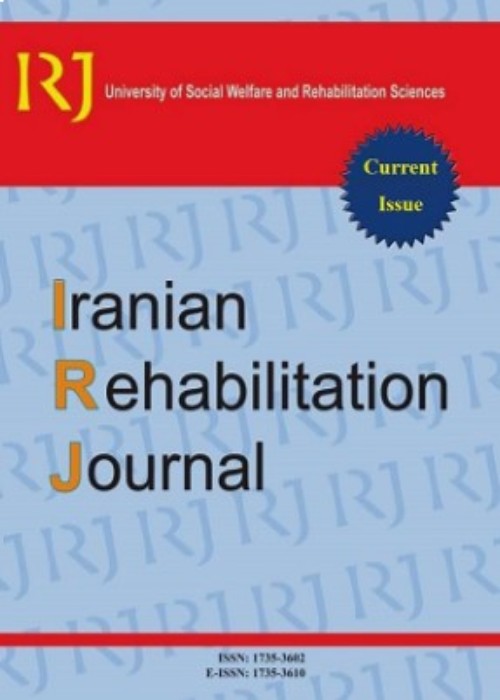Validity and Reliability Determination of Parents Evaluation of Developmental Status (PEDS) in 4-60 Months old Children in Tehran
Author(s):
Abstract:
Objectives
This research was designed to identify the validity and reliability of Parents Evaluation of Developmental Status, a developmental screening questionnaire, in 4-60 months old children in Tehran city. Methods
At first a precise translation of the questionnaire was done by the research team and then the Persian version was back translated by three English language experts. The back translated version was compared with the original version. Next the content validity of the finalized Persian version was verified by three pediatricians who were expertise in child development and also by literature review. Then, the test was performed on 648 children ranging from 4 to 60 months old, in four health care centers, in north, south, east and west regions of Tehran city. In order to determine the agreement coefficient, these children were also evaluated by ASQ at the same time. Available sampling was used until the desired sample number was achieved. Test-retest methods (by 2-3 weeks interval) and Cronbach’s α were used in order to determine reliability of the test. Because there was no developmental gold standard diagnostic test accessible, the Kappa agreement coefficient between PEDS and ASQ, another developmental screening questionnaire, was estimated. The data was analyzed by SPSS software version 16. Results
All of the questions in PEDS had good content validity, and there was no need to change them. The total Cronbach’s α coefficient was 0.63. By considering the low items number of PEDS, the estimated value was acceptable. The Cronbach’s α coefficient of test- retest was 0.87 that is good (P<0.001). The estimated Kappa measure agreement between PEDS and ASQ was 0.30 (P<0.001), because the large sample size and similarity of the result of screening in 71.5%, it is possible to conclude that this measure is acceptable. Developmental disorders were observed in 23.1% of children (4.6% delayed and 18.5% questionable) who were examined by PEDS, and in 26.4% of children who were examined by ASQ (14.7% delayed and 11.7% questionable). Conclusion
PEDS has a good content validity and reliability and can be used for developmental screening of children in Tehran city. Because the test is brief, using it can lead to saving time and resources.Keywords:
development , developmental delay , screening , PEDS , ASQ
Language:
English
Published:
Iranian Rehabilitation Journal, Volume:13 Issue: 24, Jun 2015
Page:
62
magiran.com/p1429503
دانلود و مطالعه متن این مقاله با یکی از روشهای زیر امکان پذیر است:
اشتراک شخصی
با عضویت و پرداخت آنلاین حق اشتراک یکساله به مبلغ 1,390,000ريال میتوانید 70 عنوان مطلب دانلود کنید!
اشتراک سازمانی
به کتابخانه دانشگاه یا محل کار خود پیشنهاد کنید تا اشتراک سازمانی این پایگاه را برای دسترسی نامحدود همه کاربران به متن مطالب تهیه نمایند!
توجه!
- حق عضویت دریافتی صرف حمایت از نشریات عضو و نگهداری، تکمیل و توسعه مگیران میشود.
- پرداخت حق اشتراک و دانلود مقالات اجازه بازنشر آن در سایر رسانههای چاپی و دیجیتال را به کاربر نمیدهد.
دسترسی سراسری کاربران دانشگاه پیام نور!
اعضای هیئت علمی و دانشجویان دانشگاه پیام نور در سراسر کشور، در صورت ثبت نام با ایمیل دانشگاهی، تا پایان فروردین ماه 1403 به مقالات سایت دسترسی خواهند داشت!
In order to view content subscription is required
Personal subscription
Subscribe magiran.com for 70 € euros via PayPal and download 70 articles during a year.
Organization subscription
Please contact us to subscribe your university or library for unlimited access!



